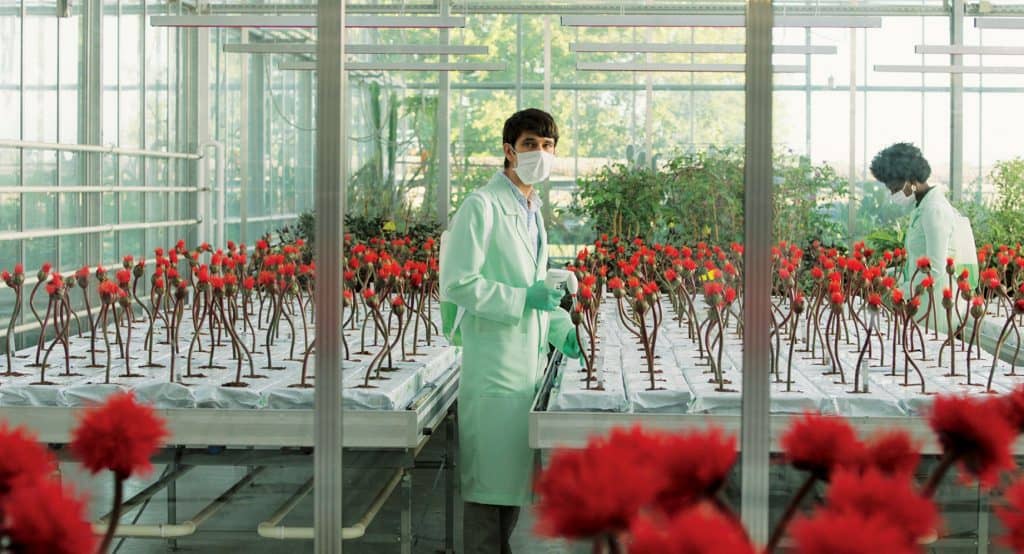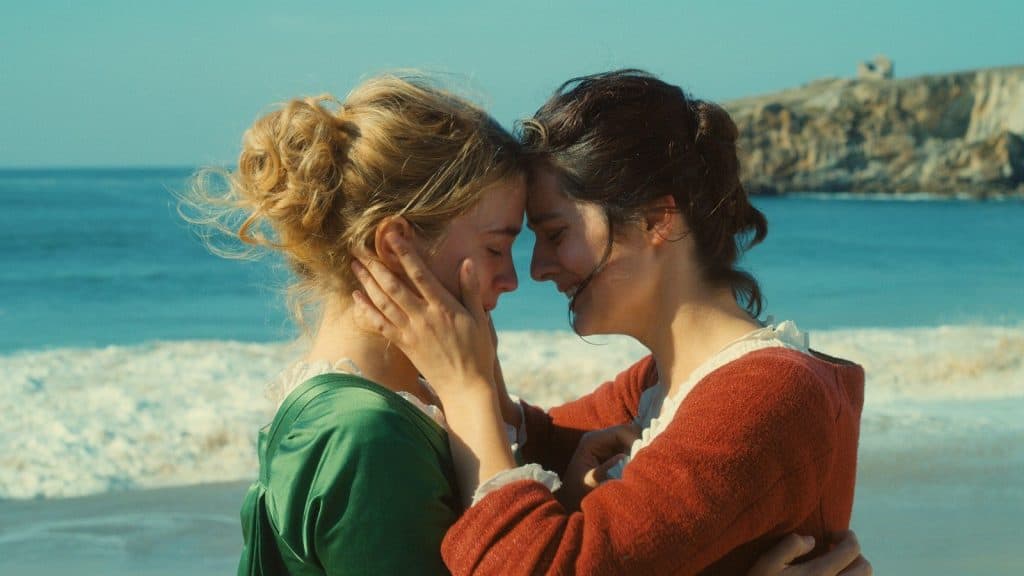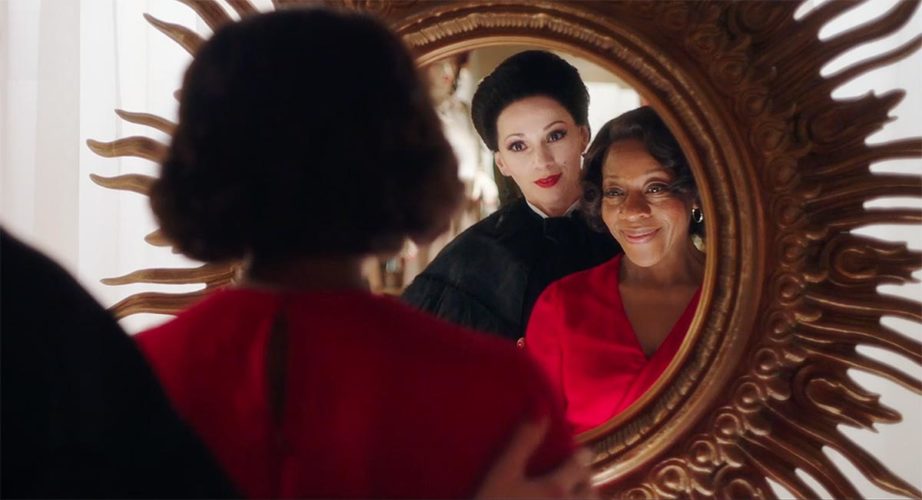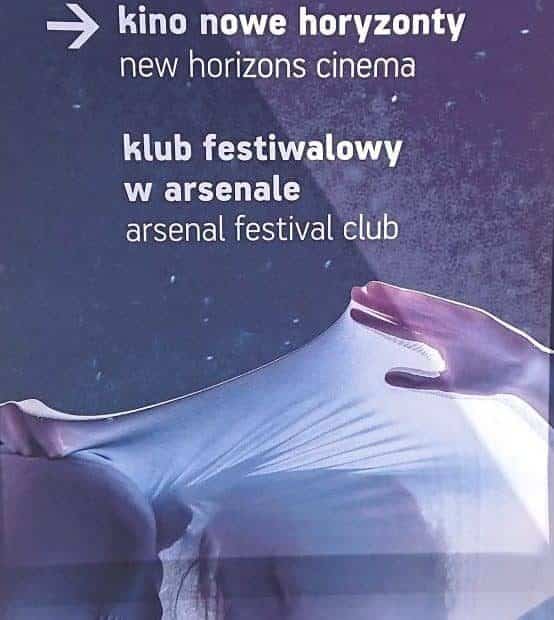Wrocław, Poland, is the city where the Nowe Horyzonty (New Horizons) festival takes place every year. This year marked the nineteenth edition. The festival stands out for many reasons. The selection is excellent, both when it comes to new films as well as retrospectives. A particular highlight was the Fred Kelemen retrospective in 2017.
The festival also has a dedicated audience that trusts the selectors and is willing to take risks. It is more or less concentrated in a single multiplex that actually serves as an art-house cinema all year long. This was my sixth consecutive year at the festival.
My first film was Little Joe by Jessica Hausner. A director I admire greatly. Her most recent film, Amour fou (2014), was, in my mind at least, a neglected masterpiece. She is probably most well-known for Lourdes (2009). Little Joe is her fifth feature and her first in English. As usual, it is co-produced by Coop99, where the cinematographer, Martin Gschlacht, serves as the managing director.
The film takes place in a lab where Alice (Emily Beecham) works as a plant breeder. Now, she has created a plant that emits a scent that will make people happy. She names the plant after her son Joe. Without going further into the plot, it suffices to say that things don’t go exactly as planned.

It is quite difficult to have an opinion on Hausner’s latest offering. It might need more than one viewing, but to me, her controlled formalism seemed slightly off-kilter here. There is gorgeous production design to spare, and Gschlact’s cinematography, where the colour red dominates together with mint green, is also impressive. It is obvious that Hausner wants to evoke a world where things are a bit out of balance, but I’m not sure if the film is calibrated enough to achieve that.
Apparently, the script was written in German and then translated into English. If that’s true, that might account for some infelicities in the dialogue. The concepts are not really explored by the plotline, which, if taken literally, is full of holes and inconsistencies. This is a film I will probably return to, as I find it hard to believe that Hausner would create something so vacuous. I’m rather hoping that I missed something.
Nowe Horyzonty goes Céline Sciamma
Beecham walked away with the actress award at the Cannes Film Festival. Something that came as a surprise to many people, particularly fans of Céline Sciamma’s Portrait of a Lady on Fire (Portrait de la jeune fille en feu), who thought that Adèle Haenel and/or Noémi Merlant would win that award.
This film, set in 1770, tells the story of Marianne (Merlant), who is commissioned to paint a portrait of Héloise, and has numerous fans. I am not one of them. I have always been sceptical about Sciamma as a director and always felt that her strength lies in her writing capabilities. She co-wrote the excellent script for André Techiné’s Being 17 (Quand on a 17 ans 2016), and also in her own films, the writing usually trumps the cinematic aspects. The award she received at Cannes this year was for the screenplay.

In this film, though, I feel that nothing works. The film is made up of scenes from other films. The Piano (1993) is only one of the films that spring to mind during the first minutes, and an array of clichés. What Sciamma seems to be going for is that three scenes with diegetic music will compensate for the rest and work as a payoff. That is the take Alex Billington has in his Letterboxd review of the film. I agree with this assessment. If you don’t feel that those three scenes work (which I don’t), then the film will not work at all. To me, the film was a negative surprise, even though my expectations were not that high.
Peter Strickland is a British director who has lived in Budapest for many years. His first feature, Katalin Varga (2009), made me immediately interested in him. The outstanding feature of that film was the sound design. Something that’s been a trademark for the director ever since. His second film, Berberian Sound Studio (2012), even dealt with the subject specifically. In Fabric is his fourth feature and maybe his strangest to date. It basically follows a dress as it passes from person to person and the effects it seems to have on them.

When I read about the film, I instantly thought about Alex Van Warmerdam’s The Dress (De jurk 1996), but that film, quirky as it is, almost feels like a documentary compared to In Fabric. As in Little Joe, the dialogue is quite stylised, but here, there is no question about whether it works or not. There is an eerie mood established very quickly that intensifies as the film moves along. It’s often funny, sometimes scary, but above all, weird and wonderful. For me, this is Strickland’s best feature and a constant visual and aural pleasure. A great way to end my first day at the festival.
Little Joe

Director: Jessica Hausner
Date Created: 2025-07-05 20:17
3.5
Pros
- The cinematography
Cons
- The stilted dialogue
- The use of music
Portrait de la jeune fille en feu

Director: Céline Sciamma
Date Created: 2025-07-05 20:17
1.5
Pros
- A few good interior shots
Cons
- Everything else
In Fabric

Director: Peter Strickland
Date Created: 2018-10-17 00:38
5
Pros
- Concept
- Cinematography
- Acting
Cons
- None


Pingback: Tofifest Day 1 - The Disapproving Swede
Pingback: Tofifest Day 3 - The Disapproving Swede
Pingback: Tofifest 2019 - The Disapproving Swede The Cool Handmade festival